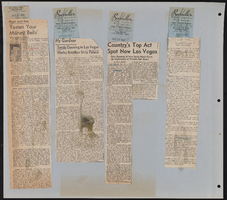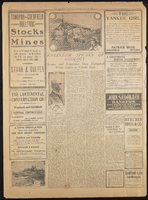Search the Special Collections and Archives Portal
Search Results
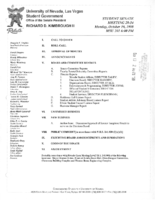
Meeting minutes for Consolidated Student Senate University of Nevada, Las Vegas, October 19, 1998
Date
1998-10-19
Archival Collection
Description
Includes meeting agenda and minutes. CSUN Session 28 Meeting Minutes and Agendas.
Text

Meeting minutes for Consolidated Student Senate University of Nevada, Las Vegas, February 8, 1990
Date
1990-02-08
Archival Collection
Description
Includes meeting agenda and minutes. CSUN Session 20 Meeting Minutes and Agendas.
Text
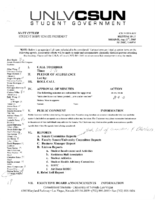
Meeting minutes for Consolidated Student Senate, University of Nevada, Las Vegas, August 11, 2008
Date
2008-08-11
Archival Collection
Description
Includes meeting agenda, with additional information about bylaws. CSUN Session 37 Meeting Minutes and Agendas .
Text
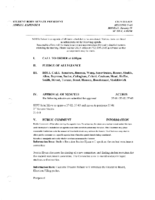
Meeting minutes for Consolidated Student Senate, University of Nevada, Las Vegas, January 29, 2007
Date
2007-01-29
Archival Collection
Description
Includes meeting agenda, with additional information about bylaws. CSUN Session 37 Meeting Minutes and Agendas.
Text
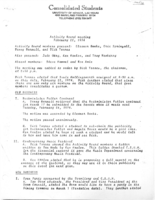
Meeting minutes for Consolidated Student Activity Board meeting, University of Nevada, Las Vegas, February 22, 1974
Date
1974-02-22
Archival Collection
Description
Meeting minutes for the University of Nevada, Las Vegas Student Senate Activity Board. CSUN Session 2 Meeting Minutes and Agendas.
Text
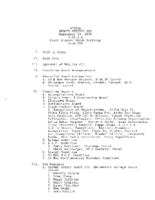
Meeting minutes for Consolidated Student Senate, University of Nevada, Las Vegas, September 18, 1979
Date
1979-09-18
Archival Collection
Description
Agenda and meeting minutes for the University of Nevada, Las Vegas Student Senate. CSUN Session 8 Meeting Minutes and Agendas.
Text
Pagination
Refine my results
Content Type
Creator or Contributor
Subject
Archival Collection
Digital Project
Resource Type
Year
Material Type
Place
Language
Records Classification

